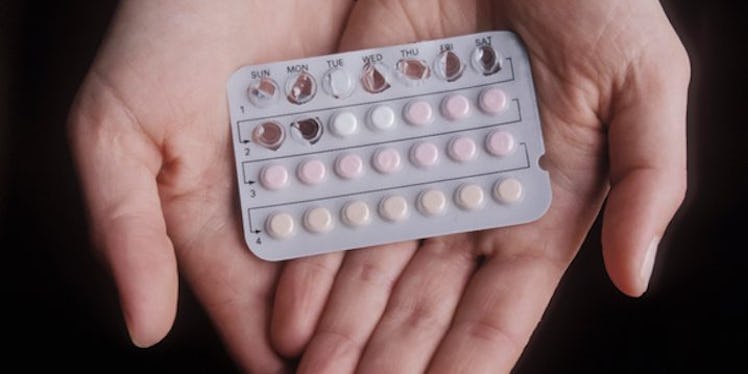
Trump's Removal Of Birth Control Access Raises Risk Of Cancer For Women
Attention President Trump,
Within hours of being sworn in, you signed an executive order aimed at removing regulatory burdens and fines imposed by the Affordable Care Act.
This illustrated just how serious you are about eliminating the act once your entire team is in place.
Part of the Affordable Care Act is what is known as the “birth control benefit.”
The “birth control benefit” is the part of the act that requires insurance plans to cover all Food and Drug Administration (FDA)-approved methods of birth control for women without out-of-pocket costs.
It was put in place to reduce the financial barriers that many women face when trying to obtain birth control.
Therefore, the act has led to millions of women having coverage of birth control without out-of-pocket costs.
It is very evident to any person with a brain (and a heart) that this coverage allows many women to appropriately time childbirth, and therefore, it grants them greater educational opportunities and financial security for their future.
With the impending repeal of the ACA, you and like-minded social conservatives are now after our rights to access to birth control.
What many narrow-minded paternalists are unaware of is, access to free and affordable birth control does not just prevent pregnancy, but it also benefits the health of millions of women.
I realize you did not attend medical school, so I would like to share with you the non-contraceptive benefits of hormonal contraceptives:
1. Decreased risk of endometrial cancer
There is strong scientific evidence that supports a 50 percent reduction in the risk of endometrial cancer among women who have used birth control pills.
The prevention effect of their use can last up to 30 years. Also, overall deaths from endometrial cancer are significantly reduced in people who have used birth control pills.
2. Decreased ovarian cancer risk
Worldwide data studies have shown a decreased risk of ovarian cancer in women who have used birth control pills.
The longer they have been on them, the greater the risk reduction. In fact, the risk decreases by 20 percent for every five years of use.
3. Decreased colon cancer risk
Studies have shown an 18 percent reduction in the risk of developing colorectal cancer among birth control pill users.
This reduction is greatest for women with recent use.
4. Treatment of painful, irregular and heavy periods
Many women suffer from painful and heavy periods that interfere with their ability to function at home and at work.
Adolescents often suffer from heavy bleeding and irregular periods. The shame of unmanageable cycles hits this demographic especially hard.
It often prevents young girls from participating in extra-curricular activities such as sports and after-school clubs.
Uncontrollable menstrual cycles also decrease women's overall productivity. Often, complications of heavy periods can lead to greater medical problems such as anemia, which may require a blood transfusion.
The first line treatment is usually birth control pills.
5. Treatment of pelvic pain due to endometriosis
Endometriosis is a disorder in which the type of tissue that forms the lining of the uterus is found outside the uterus.
This tissue may grow and bleed like the uterine lining does during the menstrual cycle. Surrounding tissue can become irritated, inflamed and swollen.
Endometriosis occurs in about one in 10 women of reproductive age. It is most often diagnosed in women in their 30s and 40s. It also can lead to infertility.
One of the safest and first treatments is birth control pills.
So, to President Trump and all other conservatives who feel that access to birth control should not be affordable: You are not advocating abstinence or taking a stand against sexual liberation. You are simply hurting women.
You're doing so by stripping away the option of a planned pregnancy and by taking away the access to a medication that decreases their cancer risk, allows them to have more manageable menstrual cycles and treats diseases specific to women.
When you look at these facts, it is simply undeniable that the removal of the Affordable Care Act will have a direct and severely negative effect on women's health.
Sincerely,
An OB-GYN (the only other person besides the women themselves who should be involved in their reproductive health)